Around The Web
EU leaders to spar over zero-carbon pledge for 2050
Diplomats say deal unlikely in Brussels but summit may signal intent to move toward target
European leaders will spar at their latest summit over how to tackle the climate crisis, with Poland and the Czech Republic leading a minority action against a net-zero carbon emissions target for 2050.
Meeting in Brussels, European leaders will debate the EU’s role in tackling the unfolding climate emergency that threatens to significantly worsen the risks of drought, floods, extreme heat, poverty and destruction of wildlife around the world.
Continue reading...Chinese ex-official pans industry calls for more coal plants
EU Midday Market Brief
Revised battery standards again risk “banning” home installs
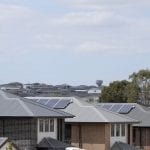 Latest Draft Standard for residential battery installations threatens same impact as scrapped “battery bunker” rule – blocking battery installations in, or on, homes.
Latest Draft Standard for residential battery installations threatens same impact as scrapped “battery bunker” rule – blocking battery installations in, or on, homes.
The post Revised battery standards again risk “banning” home installs appeared first on RenewEconomy.
Labor demands investigation into misconduct allegations
Critics seek to stop Great Lakes pipeline run by company with poor safety habits
Environmental groups say Line 5 poses a major threat and is run by Canada’s Enbridge which has a long record of mismanagement
A coalition of environmental groups and newly elected Democrats in Michigan are seeking to shut a controversial pipeline through the Great Lakes they say represents a major environmental threat and is being run by a company with a long record of mismanagement, poor safety habits and deception.
Canadian oil giant Enbridge wants to replace an ageing pipeline called Line 5 that cuts through the Great Lakes, which hold more than 90% of the nation’s freshwater. It transports about 540,000 gallons of oil and liquid natural gas daily in 4.4 miles of pipelines that are exposed on the lake floor in the Mackinac Straits.
Continue reading...UK's big energy firms accused of failing to tackle climate crisis
Shell, BP and Centrica have talked of backing EU emissions target but withheld support
The UK’s largest energy companies have withheld support for a legally binding target to reduce the EU’s emissions to net zero by 2050, even while publicly backing the plans.
Royal Dutch Shell, BP and British Gas’s owner, Centrica, have all publicly thrown their weight behind more ambitious EU emissions cuts, but none supported the Brussels proposals for a tougher target in an official consultation.
Continue reading...Renewable energy heads to the harbour
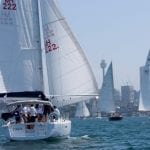 A small group within renewable energy industry have set up an inaugural event, for those involved in the sector, as well as its supporters
A small group within renewable energy industry have set up an inaugural event, for those involved in the sector, as well as its supporters
The post Renewable energy heads to the harbour appeared first on RenewEconomy.
Memo to the environment minister: a river does need all its water
Why the NT should choose 100% renewables, instead of fracked gas
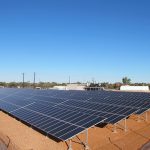 The Northern Territory is at a crossroads. It can go down the dead-end street of gas fracking, or become Australia’s first renewable-driven economy.
The Northern Territory is at a crossroads. It can go down the dead-end street of gas fracking, or become Australia’s first renewable-driven economy.
The post Why the NT should choose 100% renewables, instead of fracked gas appeared first on RenewEconomy.
Song of one of rarest whales on planet recorded for first time
There are only about 30 north Pacific right whales left after hunters nearly wiped out the slow-moving animals
Marine biologists for the first time have recorded singing by one of the rarest whales on the planet, the north Pacific right whale.
Researchers at the National Oceanic and Atmospheric Administration (NOAA) used moored acoustic recorders to capture repeated patterns of calls made by male north Pacific right whales.
Continue reading...Sadiq Khan announces car-free day in London to tackle air pollution
Event will take place on 22 September across 18 boroughs, with road closures and events
Sadiq Khan has announced plans to implement London’s biggest car-free day to date, closing 12.3 miles (20km) of roads in the centre of the capital in September.
Roads will be closed for the event around London Bridge, Tower Bridge and much of the City of London to help tackle the capital’s air pollution crisis, which kills thousands of people each year and leaves two million – including 400,000 children – living in areas with illegally dirty air.
Continue reading...Edify Energy celebrates completion of Gannawarra big battery
 Australia’s market leader in renewable energy and storage development, Edify Energy, has celebrated the completion of Gannawarra Energy Storage System (GESS).
Australia’s market leader in renewable energy and storage development, Edify Energy, has celebrated the completion of Gannawarra Energy Storage System (GESS).
The post Edify Energy celebrates completion of Gannawarra big battery appeared first on RenewEconomy.
Deep dive into the ACT’s 100% renewable energy target
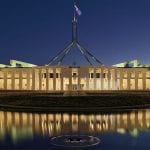 Contracted wind and solar generated 98% of ACT's net demand over past year, and 78% of ACT's electricity could theoretically have been supplied directly from wind and solar without storage.
Contracted wind and solar generated 98% of ACT's net demand over past year, and 78% of ACT's electricity could theoretically have been supplied directly from wind and solar without storage.
The post Deep dive into the ACT’s 100% renewable energy target appeared first on RenewEconomy.
Seawalls to protect US against rising oceans could cost $416bn by 2040
Seawalls could cost as much as the initial investment in the interstate highway system, with Florida facing $76bn, report finds
Defending against rising seas could cost US communities $416bn in the next 20 years, according to a new report.
Spending on seawalls alone could total almost as much as the initial investment in the interstate highway system, the authors said. And the billions involved will represent just a fraction of adaptation efforts governments in coastal states will have to fund if they do not want to simply retreat.
Continue reading...The 10GW solar vision that could turn Northern Territory into economic powerhouse
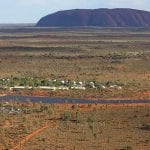 The NT's untapped economic potential could be realised through large-scale investment in solar energy, a new BZE report has found.
The NT's untapped economic potential could be realised through large-scale investment in solar energy, a new BZE report has found.
The post The 10GW solar vision that could turn Northern Territory into economic powerhouse appeared first on RenewEconomy.
Australia’s biggest manganese metals project may go 90% renewables
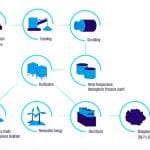 Renewables could power up to 90% of major new manganese project, and show how cheap wind and solar can help Australia compete in refining and value-added products.
Renewables could power up to 90% of major new manganese project, and show how cheap wind and solar can help Australia compete in refining and value-added products.
The post Australia’s biggest manganese metals project may go 90% renewables appeared first on RenewEconomy.
Copper and gold turns to renewables, OZ Minerals to power site with solar, wind and storage
 OZ minerals will use a hybrid solar, wind and battery system to power its Carrapeteena Copper-Gold Mine in an effort to reduce diesel costs.
OZ minerals will use a hybrid solar, wind and battery system to power its Carrapeteena Copper-Gold Mine in an effort to reduce diesel costs.
The post Copper and gold turns to renewables, OZ Minerals to power site with solar, wind and storage appeared first on RenewEconomy.
COMMENT: Australia’s energy exports increase global greenhouse emissions, not decrease them
Coober Pedy powered by 100 per cent renewables – most of the time
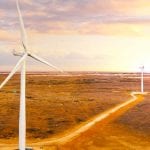 Coober Pedy hybrid grid operating at world leading 70% share of renewables, and at 100% wind and solar for more than half the time.
Coober Pedy hybrid grid operating at world leading 70% share of renewables, and at 100% wind and solar for more than half the time.
The post Coober Pedy powered by 100 per cent renewables – most of the time appeared first on RenewEconomy.



